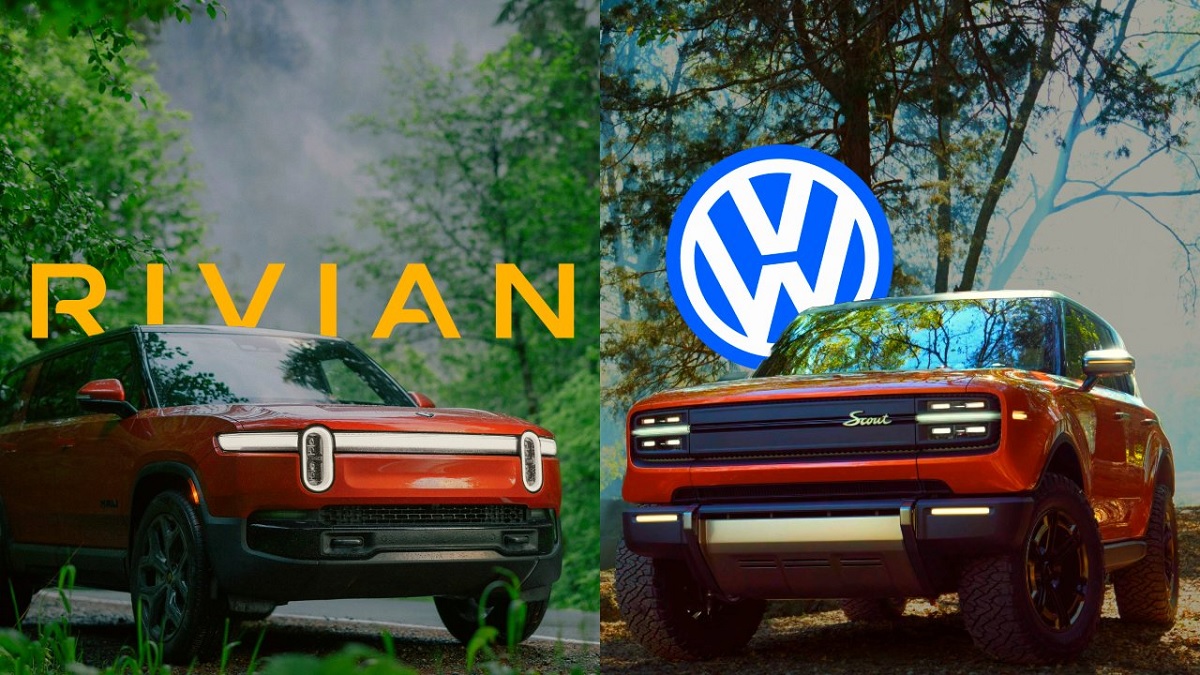Volkswagen Group (VW) recently announced an increase in its investment in a joint venture with electric vehicle company Rivian Automotive, ahead of the official start of their collaboration on Wednesday. With a commitment of up to $5.8 billion—an increase from the initial $5 billion—the joint venture promises to deliver groundbreaking changes to the global electric vehicle industry.
Here's ads banner inside a post
The Motivation Behind Increased Investment and Changes in Deal Structure
In a joint announcement from both companies on Tuesday, the increased investment was explained as VW’s decision to accelerate potential future investments in the project, along with changes to the agreement’s structure, including equity investments. During an investor call, officials from VW and Rivian shared that this decision was driven not only by financial needs but also by a desire to ensure stability and readiness for the joint venture in its upcoming development stages.
VW Group CEO Oliver Blume emphasized that Rivian’s technology would be integrated into many VW brands, serving a range of market segments from affordable to luxury and expanding to international markets. “Rivian’s technology will help us make a difference and meet customers’ needs across various levels,” Blume stated during the press conference.
Rivian’s Technology Across VW’s Top Brands
The integration of Rivian’s software is expected to start with the Volkswagen brand, followed by Audi and Scout—a new brand VW is developing. Blume also hinted that the group’s sports cars could eventually use Rivian’s technology, though he didn’t specify which brand would be next. This has generated anticipation among consumers, as VW also owns luxury brands such as Bentley, Porsche, and Lamborghini.
Here's ads banner inside a post
Rivian CEO RJ Scaringe expressed his excitement: “We’re thrilled to see Rivian’s technology included in vehicles beyond Rivian’s own, and we’re excited about this future partnership with Volkswagen,” he said in a statement.
Future Plans and Potential Expansion of the Partnership
Both Scaringe and Blume noted that any plans to produce battery modules, jointly manufacture vehicles, or share other hardware components would require additional agreements beyond the current joint venture. This cautious approach suggests that VW and Rivian are carefully managing and developing their partnership, ensuring that each decision aligns with market demands and the companies’ growth strategies.
The joint venture, expected to launch in the fourth quarter, will be named Rivian and VW Group Technology, LLC. This represents one of VW’s significant steps toward transitioning to electric vehicles and investing in sustainable technology.
Here's ads banner inside a post
Investment Details
VW has already made an initial investment of $1 billion in the form of a convertible note. Upon the formal establishment of the joint venture, VW will invest around $1.3 billion to acquire intellectual property licenses and a 50% stake in the venture. The remaining investment, up to $3.5 billion, will be allocated by 2027 in the form of equity, convertible notes, and debt, based on clearly defined milestones agreed upon by both companies.
This increased investment follows the joint venture’s initial announcement in June, as Rivian sought additional capital to support its upcoming vehicle production and expand manufacturing capacity. According to Scaringe, VW’s capital will help Rivian ramp up production of the smaller R2 SUVs at its Normal, Illinois plant in early 2026, as well as prepare for production of a midsize electric vehicle platform at a Georgia plant, where Rivian paused construction earlier this year.
Joint Venture Leadership and Development Vision
The new joint venture will be led by Rivian’s Chief Software Officer, Wassym Bensaid, and VW Group’s Chief Technical Engineer, Carsten Helbing. Software and engineering experts from both companies will join the venture, with initial teams based in Palo Alto, California. Three other facilities are also being developed in North America and Europe, underscoring the venture’s ambition to expand globally, not just within the United States.
Stakeholder Expectations and the Future of Both Companies
The joint venture between VW and Rivian is a major strategic move as large automotive companies transition to the electric vehicle industry. VW hopes the integration of Rivian’s technology will not only enhance its competitiveness but also serve as a bridge to expand its international market share. For Rivian, this is a golden opportunity to establish a stronger reputation in the electric vehicle industry, especially with support from a leading global corporation.
Conclusion: The Future of the Rivian-VW Joint Venture
The Rivian and Volkswagen joint venture is not just a financial partnership but also represents the ambitions and expectations of two giants in the electric vehicle industry. The $5.8 billion investment not only provides financial support but also solidifies VW’s commitment to transforming and advancing sustainably. Meanwhile, Rivian can leverage this backing to expand production capacity and reach more markets.
Both companies have committed to making this partnership a solid foundation for future development, aiming to deliver advanced, eco-friendly, and diverse electric vehicle products to consumers worldwide.



